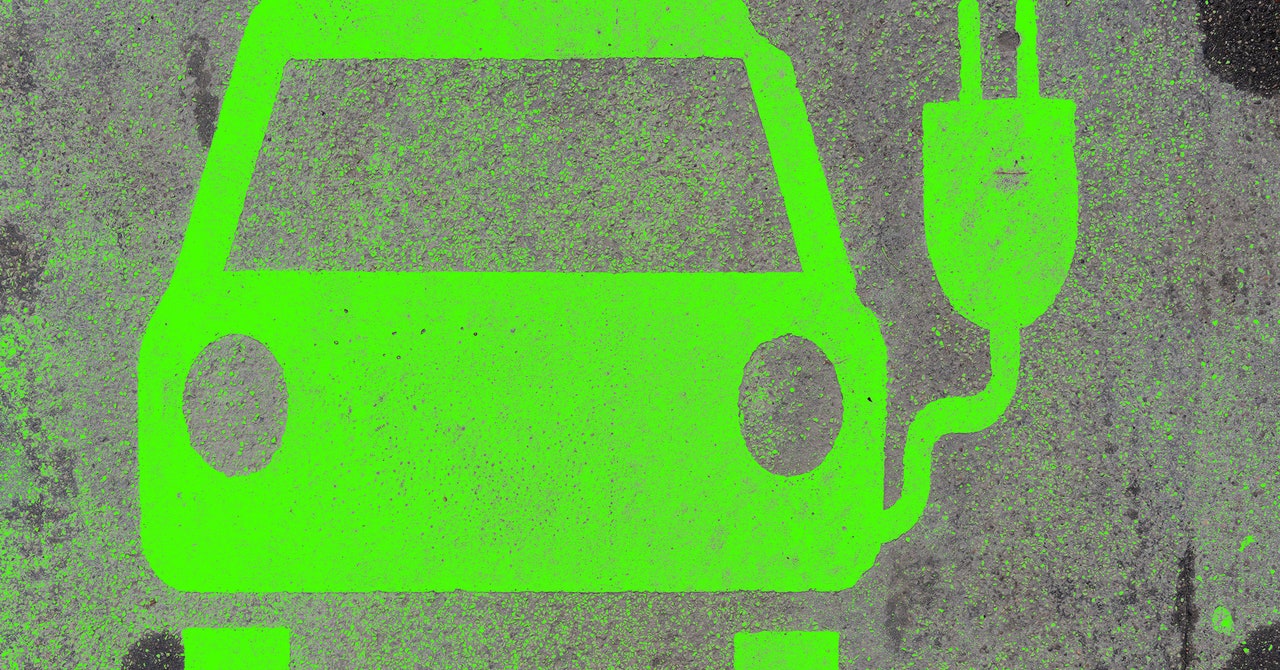Did Trump Really End The EV Mandate? Unpacking The Claim

Did Trump Really End The EV Mandate? Unpacking The Claim. Discover more detailed and exciting information on our website. Click the link below to start your adventure: Visit Best Website. Don't miss out!
Table of Contents
Did Trump Really End the EV Mandate? Unpacking the Claim
The claim that former President Donald Trump ended the electric vehicle (EV) mandate continues to circulate, sparking debate and confusion among consumers, automakers, and environmental advocates alike. This article delves into the complexities surrounding this assertion, separating fact from fiction and examining the actual impact of Trump-era policies on EV adoption in the United States.
The Roots of the Confusion: Navigating Federal Regulations
Understanding the nuances of the situation requires understanding that there wasn't one single, overarching "EV mandate" that Trump simply abolished. Instead, the Obama-era administration implemented various policies aimed at boosting EV sales and promoting fuel efficiency across the automotive industry. These initiatives involved a complex interplay of regulations, including Corporate Average Fuel Economy (CAFE) standards and state-level incentives.
Trump's administration, while not explicitly repealing existing laws, sought to roll back certain environmental regulations, creating significant uncertainty regarding the future of EV promotion. This approach involved several key actions:
- Freezing CAFE Standards: The Trump administration attempted to freeze CAFE standards, aiming to reduce the pressure on automakers to produce more fuel-efficient vehicles, including EVs. This move directly impacted the incentives for auto manufacturers to invest heavily in EV technology.
- Revoking California's Waiver: California holds a unique position, allowed to set its own stricter emission standards than federal guidelines. The Trump administration challenged this waiver, hindering California's ability to incentivize EV adoption within its borders – a state that's a significant market for electric vehicles.
- Shifting Priorities: The overall focus shifted away from promoting alternative energy sources and towards fossil fuels, creating a less favorable regulatory environment for EV development and sales.
The Reality: No Single Mandate, but Significant Impacts
It's inaccurate to say Trump "ended" an EV mandate. There was no single, overarching law targeting EVs that he repealed. However, his administration's actions undeniably created a climate less conducive to EV adoption. The attempts to weaken fuel efficiency standards and challenge California's waiver significantly hampered the progress made under previous administrations.
The Long-Term Effects of the Trump Administration's Policies on the EV Market
The policies pursued during the Trump presidency significantly impacted the trajectory of the EV market in the US. While the existing framework for CAFE standards remained, the attempts to weaken them sent a clear signal to automakers, potentially slowing down investment in electric vehicle technologies.
This slowdown could be seen in:
- Reduced Investment in EV Infrastructure: Less certainty regarding future regulations likely led to reduced investment in charging stations and supporting infrastructure.
- Slower Adoption Rates: The combined effect of weaker incentives and uncertainty regarding future regulations potentially contributed to slower-than-expected EV adoption rates compared to projections made under previous administrations.
- Increased Challenges for Automakers: Automakers faced the difficult task of balancing investment in EV technologies with the uncertain regulatory landscape.
The Biden Administration's Response: A Renewed Focus on EVs
The Biden administration has taken a decidedly different approach, actively promoting the adoption of electric vehicles through various initiatives, including:
- Reinstating stronger CAFE standards.
- Investing heavily in EV infrastructure.
- Providing significant tax credits and incentives for EV purchases.
Conclusion: A Complex Issue Requiring Nuance
While no single "EV mandate" was officially ended by the Trump administration, its policies undeniably created a less favorable environment for EV growth. Understanding this requires acknowledging the complex interplay of federal regulations, state-level initiatives, and the overall policy direction of each administration. The ongoing debate about the extent of the impact highlights the importance of clear and consistent policymaking in driving the transition to sustainable transportation. Stay informed about evolving regulations and support policies that foster a sustainable future for transportation.

Thank you for visiting our website wich cover about Did Trump Really End The EV Mandate? Unpacking The Claim. We hope the information provided has been useful to you. Feel free to contact us if you have any questions or need further assistance. See you next time and dont miss to bookmark.
Featured Posts
-
 Jogo Santos X Palmeiras A Polemica Declaracao De Milton Neves
Jan 24, 2025
Jogo Santos X Palmeiras A Polemica Declaracao De Milton Neves
Jan 24, 2025 -
 The Limitations Of Bmi In Assessing Obesity Risk
Jan 24, 2025
The Limitations Of Bmi In Assessing Obesity Risk
Jan 24, 2025 -
 Retailer Rivers To Shutter Stores This April
Jan 24, 2025
Retailer Rivers To Shutter Stores This April
Jan 24, 2025 -
 What Caused The Sudden Drop In Trump And Melania Meme Coins
Jan 24, 2025
What Caused The Sudden Drop In Trump And Melania Meme Coins
Jan 24, 2025 -
 Dominasi Feyenoord Bayern Muenchen Dipermalukan 3 0
Jan 24, 2025
Dominasi Feyenoord Bayern Muenchen Dipermalukan 3 0
Jan 24, 2025
Latest Posts
-
 Deckee App Yanchep News On Dfes And Marine Rescue Wa Collaboration
Feb 05, 2025
Deckee App Yanchep News On Dfes And Marine Rescue Wa Collaboration
Feb 05, 2025 -
 Adrianne Baums Impact On Contemporary Art A Critical Analysis
Feb 05, 2025
Adrianne Baums Impact On Contemporary Art A Critical Analysis
Feb 05, 2025 -
 Is Puto Offensive A Sensitivity Guide To Its Usage
Feb 05, 2025
Is Puto Offensive A Sensitivity Guide To Its Usage
Feb 05, 2025 -
 C Battery Recycling A Guide To Responsible Disposal
Feb 05, 2025
C Battery Recycling A Guide To Responsible Disposal
Feb 05, 2025 -
 Sam Newman Fresh Allegations Surface Regarding Blair Interview
Feb 05, 2025
Sam Newman Fresh Allegations Surface Regarding Blair Interview
Feb 05, 2025
